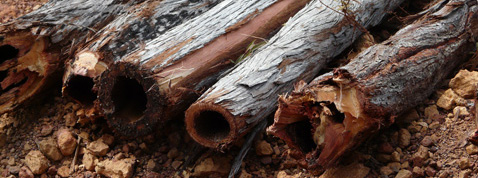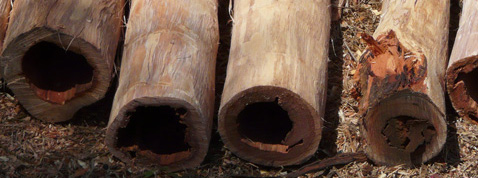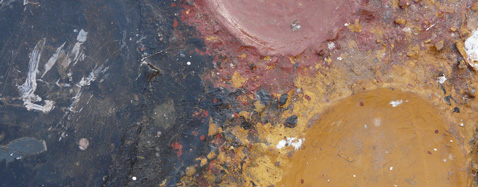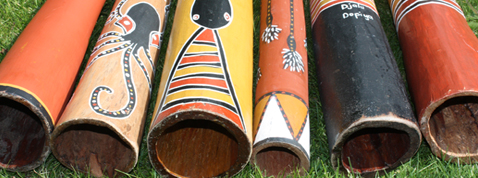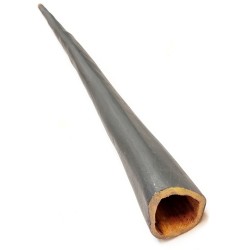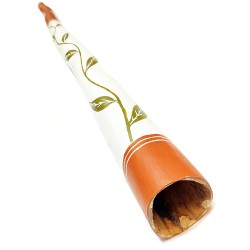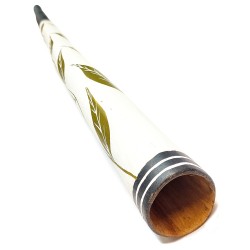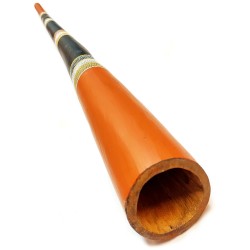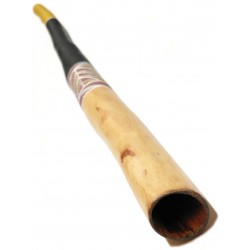What is a yiḏaki? And why are they different from a didgeridoo?
Yiḏaki and mago
Yiḏaki are a group of instruments which are played in North East Arnhemland and the Yolŋu own the oldest stories on how the instruments came to existence. Yiḏaki are mostly conical shaped instruments and vary in key mostly between C and G. A perfect yiḏaki has a 'toot' about an octave higher than the fundamental and needs no beeswax .
Mago, on the other hand, is more cylindrical in shape than a yiḏaki, it has rich harmonics and the 'toot' is absent in this style of music. Mago is the term used in Western and North Central Arnhemland.
Didgeridoo playing
There are a lot of different types of yiḏaki/mago and every type stands for a unique name, playing-style and sound character. A certain clan can have several varieties of the instrument, each with their own name and usage in ceremony, song-cycle or ritual. To make it even more complicated, a particular instrument can have a couple of different names, depending on the context.
In aboriginal-music biḻma or clap-sticks are the most important instruments (mostly representing time/law). Besides yiḏaki and biḻma there are several other instruments known, mostly being percussion instruments like boomerangs and shakers. In Northern Queensland, a skin-drum is played.
Eucalyptus
Out off the 500 different eucalyptus species only about 3 are commonly used for making yiḏaki and mago: Stringy-bark, Bloodwood and Woolly-butt. As you might already know the logs are eaten out by termites (Mastothermes darwiensis).
In tradition there is a big difference between ceremonial and public songs. The hearing/playing of ceremonial songs is often prohibited for the non-initiated while public songs are played for amusement. In general, Yolŋu people encourage everybody to try to play Yolŋu style and integrate their music into a new style. To some Yolŋu it may cause offense if you copy clan songs exactly.
Read more on this subject.
Buying a Didgeridoo
If you are about to buy yourself a didgeridoo then you are very likely to get a non authentic instrument as 99% of all didgeridoos sold around the globe are not made by Aboriginal people from Arnhemland, Australia!
After being adopted in an Aboriginal clan, Michiel started a bussines selling traditional instruments. Since 2011 he ships top quality all over the world.
